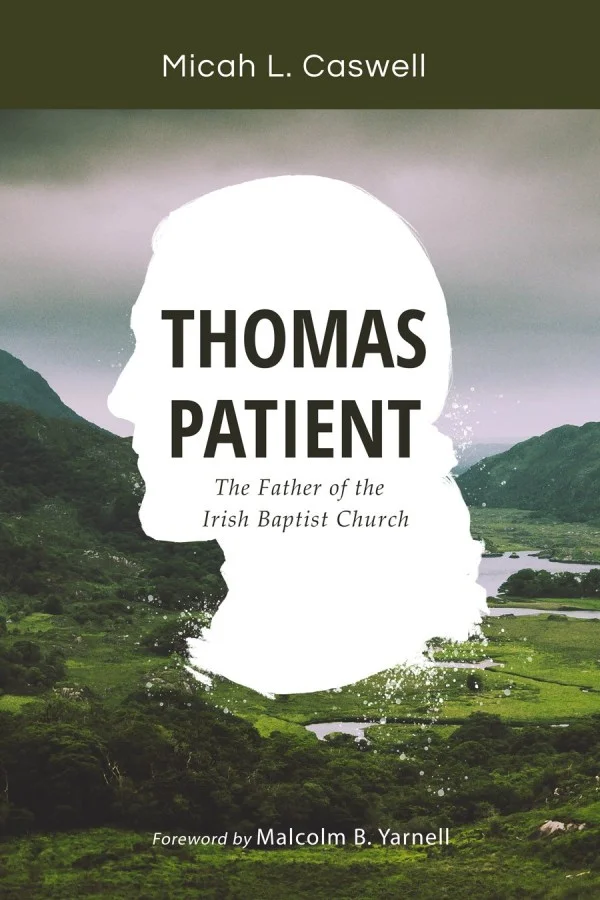If you struggle with panic attacks Lucy Ann Moll’s mini book is a great place to start on your journey of discovering how the gospel helps you. This is only 64 pages and can be read in a couple of evenings. She does a great job of providing biblical counsel, but also acknowledges the place of medicine.
BOOK REVIEW: DEPRESSION: THE WAY UP WHEN YOU'RE FEELING DOWN
Many of us have been haunted by depression. The first resource I recommend someone struggling with depression is Ed Welch’s booklet. It is only 32 pages and thus can be read in one day. Even though it is short, it gets to the heart of the problem of depression as well as providing gospel solutions and practical tips on how to fight when depressed.
BOOK REVIEW: THE FREEDOM OF SELF-FORGETFULNESS
Contemporary culture has a plurality of opinions of how to view human identity. For some, self-esteem is the ultimate virtue to achieve. The spirituality of many is that if they could only have a higher view of themselves then they would be happy. However, the Bible has better news. Tim Keller’s “The Freedom of Self-Forgetfulness” is important because a wrong view of personal identity is leading to wasted unhappy lives.
CHURCH SHOOTING PRAYERS AND THOUGHTS
As a pastor, news of another church shooting has grieved me and brought me to my knees once again. However, as a pastor, I also oversee the institution of Redeemer Church. It is my responsibility to provide leadership in order to provide a safe environment for our church to worship. As your pastor, I don’t feel the freedom to entertain political platitudes, but rather feel the burden to study these incidents in order to implement what works. Therefore, I want to provide some comments for our church about church shootings.
BAPTISM TESTIMONY | ESTHER DAO
BAPTISM TESTIMONY | TUCKER PACE
BAPTISM TESTIMONY | NATHANIEL SMITH
BAPTISM TESTIMONY | GABRIEL SMITH
BAPTISM TESTIMONY | CAILEIGH GASSER
BAPTISM TESTIMONY | CARTER GASSER
BAPTISM TESTIMONY | EMMA KATE ADAMS
A HISTORY OF BAPTIST COOPERATION
Local autonomy has always been part of Baptist history, but so has cooperation. Throughout our history, local Baptist churches have been the ultimate authority for their own congregation. Baptist churches hire their own pastors. Baptist churches install their own Elders and Deacons. Baptist churches develop and approve their own budgets including making decisions about missions giving. However, we also have a history of cooperation with other churches. Typical Southern Baptist churches cooperate through local county associations, state conventions, and the national Southern Baptist Convention. These contemporary efforts are grounded in a history of cooperation found in the earliest Baptist churches. I have recently published a book about an early Baptist named Thomas Patient (HERE) who both planted the first Irish Baptist churches but also cooperated with other like-minded Baptist churches.
SOUL COMPETENCY OR REGENERATE CHURCH MEMBERSHIP?
Baptists have long asked the question, “what does it mean to be a Baptist?” E. Y. Mullins was the president of The Southern Baptist Seminary and argued that soul competency was Baptists’ “mother principle.”[1] Other ideas about religious liberty and oppositions to confessions of faith spring from the Mullins’ teachings on soul competency. However, the father of the Irish Baptist movement would disagree with Mullins’ conclusions. Thomas Patient planted the first Baptist churches in Ireland and did so for different reasons than soul competency. The doctrine that led to Patient establishing those first Irish Baptist churches helps Baptists understand what it really means to be a Baptist.
THE IRISH AND BAPTIST IDENTITY
The Irish Baptists inform our understanding of what it means to be Baptists because they have an undisputed beginning. I recently wrote a biography of Thomas Patient who planted for the first Irish Baptist churches (HERE). One of the challenges for Baptists is to pinpoint our beginning. Baptist historians have struggled to identify when and where the movement actually began. Some have tried to link a trail throughout church history from the time of Christ into the English Reformation. Others have claimed it began on the European continent with close links to the Anabaptist tradition. Still others argue the Baptist movement comes directly out of the English Reformation. Beginnings are significant because they inform identity. For example, if our beginnings are closely linked to the Anabaptist tradition then Anabaptist doctrines should help us understand what it means to be a Baptist today. However, the Irish Baptist movement is uniquely helpful because their beginning is undisputed. Their undisputed beginning informs their identity which then informs the broader Baptist identity.
IRISH LESSONS FOR CHURCH PLANTERS
Tucked away in the religious history of Ireland is a profound lesson for church planters. I recently wrote a biography of Thomas Patient who planted for the first Irish Baptist churches (HERE). Guys who plant churches breathe the Great Commission, “Go therefore and make disciples of all nations, baptizing them in the name of the Father and of the Son and of the Holy Spirit, teaching them to observe all that I have commanded you. And behold, I am with you always, to the end of the age” (Matthew 28:19-20). The history of the Irish Baptists teaches us the virtue of planting churches committed to regenerate church membership. The original Irish Baptist churches were started because of the doctrine of believers’ baptism and thus regenerate church membership. Those churches were planted in the 1650’s and remain faithful gospel witnesses today.
THE VIRTUE OF READING ORDINARY CHRISTIANS
Reading about the lives of ordinary Christians gives hope for how to have an impact on our generation. Many read about the luminaries, but there is a virtue to reading about ordinary Christians in the past. Reflecting on the history of ordinary Christians helps preserve our faith, deepen our theology, deeper our understanding of contemporary culture, and is fun. Yes, fun can be a virtue. Yes, history can be fun.












